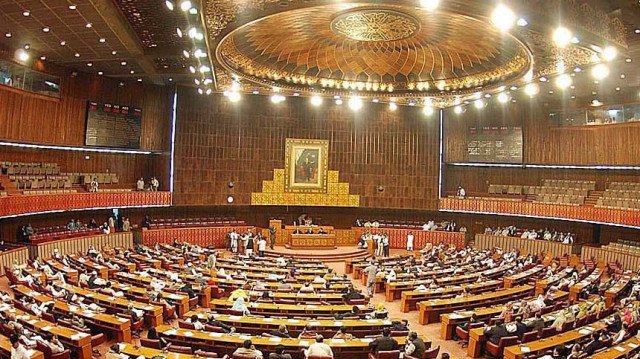Devolution problems: ‘New laws are causing a lot of confusion at hospitals’
Standing committee on health meets JPMC admin, federal minister keeps away.

Speaking to The Express Tribune after the meeting, Senator Khan highlighted the key points that were discussed. On the issue of devolution, he said that the implementation of the 18th amendment and the consequent devolution of the education and health ministries was scheduled to be implemented by June 30 this year. The devolution has been a source of confusion among the federally-controlled and provincially-run institutions for some time and Khan said that there was barely any time left till the implementation date and further confusion was being caused because stakeholders are being left out of the loop.
The meeting lasted several hours and was headed by the committee chairperson, Kalsoom Perveen. After the meeting, Perveen gave a brief and evasive summary of the discussion, saying that while there was progress in some areas of the federally-run teaching hospital, there was room for improvement in others.
Clearly unhappy with the chairperson’s summary, JPMC executive director Professor Tasnim Ahsan said matters were not that simple but declined to comment further.
Budget increase
“The country’s economic condition is no secret-there is no money,” Khan said, adding that an additional fund for projects and departments is just not possible right now. He suggested, however, that efficiency between the working hours of 8 am to 2 pm be increased so that patients can benefit. “It is unfair that doctors and administrative staff stroll into work at 10 am or 11 am, when working hours start at 8 am,” he said. He also defended doctors’ rights to run their own private practice in the evening. “The law permits them to run their own practice after their hours committed to the government end (2pm) but they need to work honestly during this time and increase efficiency and I am certain half the issues would be solved.”
Emergency funds
Funds were allocated for the accident and emergency ward at JPMC, but no amount was announced. According to Khan, the budget would be announced and released in 15 days. He also said that funds for salaries of some staff, which had not been paid for a few months, would be released in a fortnight as well.
Censuring the federal minister
The senator said that the federal health minister, Makhdoom Shabuddin, and federal secretary’s lack of interest in the health sector was evident and if they “did not have time to attend important meetings, such as this one, then they should resign from their post.”
NGOs’ role
“The work NGOs are doing here [in the hospital] is truly praiseworthy and must be appreciated,” he said. “[Even] though I am a part of the senate standing committee on health, I didn’t know about the NGOs’ participation and the extent of their cooperation with the work here, so how would others? This is certainly an issue that needs to be highlighted, given support and praise,” he added.
According to joint-director at JPMC and incharge of accident and emergency ward Dr Seemin Jamali, there are currently 13 NGOs helping out in JPMC.
Published in The Express Tribune, January 22nd, 2011.



















COMMENTS
Comments are moderated and generally will be posted if they are on-topic and not abusive.
For more information, please see our Comments FAQ